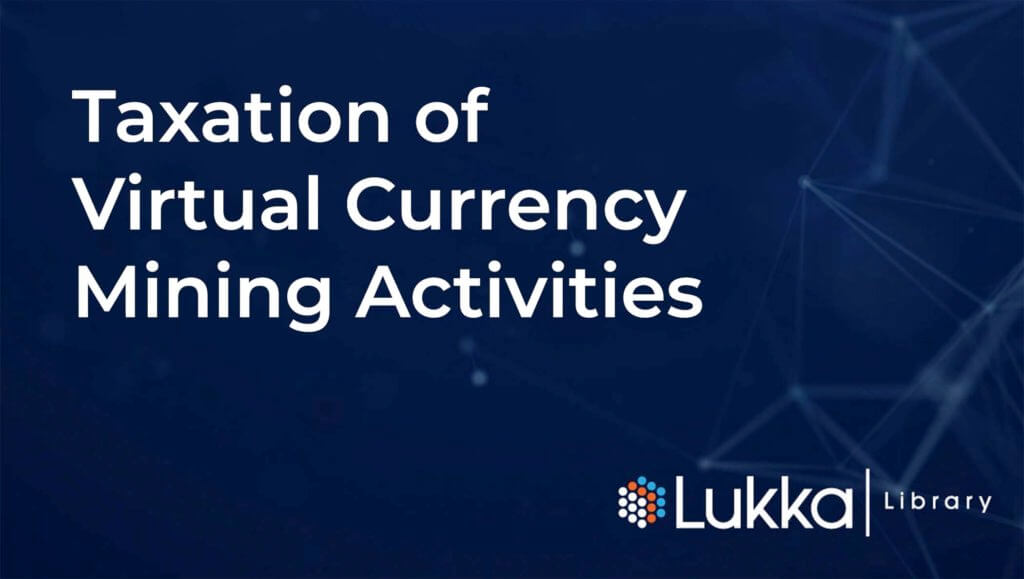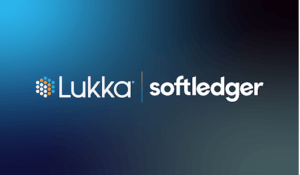
Authors: Andrea S. Kramer, McDermott Will & Emery*
The analysis in this memorandum reflects the law in existence as of January 31, 2020.
All blockchain (digital ledger) transactions require some type of consensus mechanism by which the transactions can be validated through distributed consensus. The two popular consensus methodologies are proof of work (PoW) and proof of stake (PoS). PoW relies on “miners” who conduct mining activities by solving complex mathematical calculations. Virtual currencies such as Bitcoin rely on PoW. PoS is a consensus validation mechanism where “stakers” validate virtual currency being confirmed on the blockchain. Virtual currencies such as Tezos rely on a PoS blockchain. Both PoW and PoS are subject to the terms of the respective protocol in place for the particular virtual currency transactions being confirmed.
This Memorandum discusses the tax issues—as of the date of this Memorandum—of income and expenses associated with virtual currency PoW mining activities. For a discussion of PoS staking activities, see McDermott’s Memorandum, “Taxation of Virtual Currency Staking Activities.”
Virtual Currency Mining
Miners confirm virtual currency transactions by sophisticated and high powered computer processes to solve complex mathematical problems. When a miner validates the addition of a new block (group of transactions) that participant (node) is paid for its services in pre-specified units of a pre-specified virtual currency.
There are no Internal Revenue Code sections, Treasury regulations, or judicial decisions with respect to virtual currency mining. The only government guidance is IRS Notice 2014-12.1 The IRS set out its preliminary views on the taxation of Bitcoin mining in the Notice. (IRS Notices do not have the force of law, and courts need not follow IRS pronouncements.2) For a discussion of the legal effect of IRS Notices, see McDermott’s Memorandum, “The Legal Effect of IRS Pronouncements on Virtual Currency Taxation.” Miners of PoW virtual currencies other than Bitcoin should determine if the mining processes for those virtual currencies are sufficiently similar to that for Bitcoin so that those miners address possible application of the IRS’s analysis.
All Miners—Even Small Scale Miners—Earn Income
The IRS’s position in the Notice is that by performing the PoW validation service, the fees miners receive in virtual currency units are ordinary income, taxable at the fair market value as of the date they receive the units. The IRS asserts that miners cannot wait to include the value of the units in income until they subsequently purchase goods or services or otherwise convert their units into U.S. dollars or another fiat currency. According to the Notice, all Bitcoin miners— even small scale ones that receive minimal fee income—must report their fees as ordinary income when received.
Given the fact that the Notice is simply the IRS’s litigating position, some miners take a contrary tax position, treating the units they receive from mining as not being taxable upon receipt but only when sold, exchanged, or otherwise disposed of. Such taxpayers argue that the units they receive from mining are more like certain forms of extraction of actual minerals where taxpayers do no pay tax on extracted minerals until they subsequently dispose of the minerals.3
Miners in a Trade or Business
To have deductible business expenses, miners need to be traders (who seek profits based on market fluctuations, not from passively overseeing their virtual currency investments) or dealers (who are in the business of buying and/or selling virtual currency to customers in the ordinary course of their business. Whether a miner’s activities rise to the level of being a trader often boils down to two things: the volume of their transactions and the ability to establish that these activities constitute an active trade or business.4 Whether miners are dealers turns on if they have customers in the ordinary course of business.
If mining activities rise to the level of a trade or business, miners can deduct appropriate business expenses and losses against their ordinary income.5 Deductible mining expenses can include, office rental, other office expenses, computer equipment, software programs, Internet access fees, and electricity. In fact, some computer equipment might be eligible for deprecation deductions.
Miners who work for themselves have net earnings from self-employment, treated as self employment income, and subject to self-employment tax.6 Their income and expenses are reported on Schedule C. Miners who are employees receive wages from their employers.
Not All Miners Are in a Trade or Business
Not all mining activities qualify as a trade or business. Miners who are not in a trade or business engage in mining transactions for their personal use or as a hobby. Although, such miners would receive income for successful mining activities, they would not be able to deduct their losses or business expenses.7 Limited itemized deductions might be available for some expenses if the miners were viewed as investors, but investors are not allowed to deduct business expenses against their income.8
Selling, Exchanging or Disposing of Mined Virtual Currency
Whether miners treat the receipt of units they receive from successful mining as taxable when they receive the units or only when they sell those units, all miners have a taxable event when they sell, exchange, or dispose of the virtual currency they receive from successful mining operations.
Entity Considerations
Miners often join together with others in pools or business relationships that are subject to a wide variety of financial arrangements. Miners who work with others need to consider whether they will be treated as being in a partnership or taxable association and the federal and state tax implications of entity selection. If mining pools are deemed to be an entity, they are subject to the federal and state tax rules and tax reporting requirements that apply to such arrangements.
As with all taxpayers, miners should carefully document their mining activities and related expenses to support their federal and state tax positions. The IRS has the authority to deny deductions if taxpayers do not properly document their deductions. Non-U.S. taxpayers should carefully evaluate whether to file protective tax returns to prevent unpleasant U.S. tax surprises if they find themselves taxed on their gross income without an ability to deduct any of their losses and expenses.
* This material is for general information purposes only and should not be construed as legal advice or any other advice on any specific facts or circumstances. No one should act or refrain from acting based upon any information herein without seeking professional legal advice. McDermott Will & Emery makes no warranties, representations, or claims of any kind concerning the content herein. McDermott and Andrea S. Kramer expressly disclaim all liability to any person in respect of the consequences of anything done or not done in reliance upon the use of the content included herein. For a complete list of McDermott entities, visit mwe.com/legalnotices.
©2020 McDermott Will & Emery. All rights reserved. Any use of these materials including reproduction, modification, distribution or republication, except as part of the Lukka Library is strictly prohibited without the prior written consent of McDermott. This material may be considered attorney advertising. Prior results do not guarantee a similar outcome.
1 Notice 2014-21, 2014-16 I.R.B. 938, Q&A-8, 9.
2 IRS Notices set out the IRS’s interpretation of tax law but they do not have precedential value. The force of the IRS’s positions are only as strong as the legal authorities the IRS cites in a Notice, the correctness of the IRS’s application of the tax laws, and the particular facts in a given transaction.
3 Taxpayers should consider Rev. Rul. 77-176 and the oil and gas and mining industry responses with structuring tax partnerships to minimize the current taxability of certain extraction operations. See Bitkker and Lokken, Federal Income Taxation and Income, Estate and Gifts.
4 Paoli v. Comm’r, 54 T.C.M. (CCH) 1574, 1578 (1988); Chen v. Comm’r, 87 T.C.M. (CCH) 1388 (2004). The phrase “trade or business” is not defined in the Code or Treasury regulations. Whether mining activities qualify as a trade or business is a question of fact. Various factors are considered, with no one factor dispositive. Elements of a trade or business include (1) activities that occupy “the time, attention and labor” of the taxpayer for the purpose of “a livelihood or profit”; (2) the continuity and regularity of the taxpayer’s activities; and (3) a profit motive. In Commissioner v. Groetzinger, the Supreme Court held that a professional gambler could be in a “trade or business” if the gambler devotes his full-time activity to gambling and it was his intended livelihood source. In this situation, his activity should be regarded as a trade or business “just as any other readily accepted activity.” 480 U.S. 23 (1987).
5 I.R.C. § 162.
6 Notice 2014 -21, Q&A-9.
7 See McDermott’s Memorandum, “Virtual Currency Losses Disallowed on Infrequent Activities.”
8See Chapter 10 of Publication 334, Tax Guide for Small Business, for more information on self-employment tax. Publication 535, Business Expenses, for more information on determining whether expenses are from a business activity carried to make a profit.




